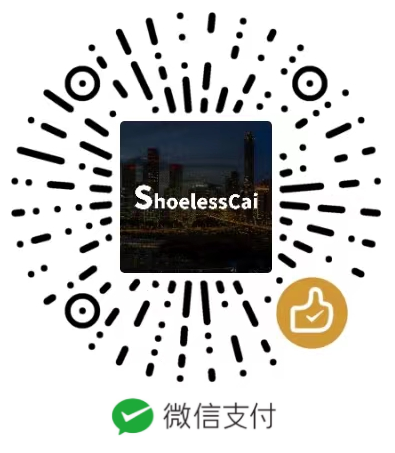
本文由百度翻译,Jingyi 作修正。为了便于伙伴们学习,在翻译和修正句子的同时,整理出有意思的语言点,供大家学习。
译文
你必须知道
- 这是苹果一年中最重要的一天。以下是该公司将宣布的新产品和改进产品。
- 财政紧张的医院越来越多地发现私募股权不是出路。
- 在东部地区的风暴之后,利比亚有数千人死亡。摩洛哥地震后,救援工作仍在继续。
注意:
1.financially strained 财政紧张
2.PE is a way out 私募股权是一条出路
3.rescue effort 救援工作
主要资讯
关于在家工作与返回办公室的争论越来越受到折磨,因为(as)公司利用新学年迫使员工回到办公桌前,即使员工恳求考虑昂贵的儿童保育等关键问题。
注意:
1.the new school year 新学年
2.plead for consideration over 恳求考虑
感觉几乎过了一整个星期,没有 CEO 敦促员工来办公室,结果只有(员工)关于员工士气和生活平衡的要求所产生的影响的反诉(ShoelessCai,这里应该指,公司对于士气和平衡要求之高,其所产生的影响是需要考虑进决策的 —— 以此为基础反诉)。女性更加易受影响,国际工作场地小组(the International Workplace Group)推断有 53% 的办公室女士也是照顾者,我同事 Clarie Suddath 最近写道。
注意:
1.It feels as if ... 这让人感觉...
2.counter pleas over 对某事的反诉
这些影响经济的因素,是如何仍在起作用的呢?市中心的零售商和餐馆抱怨说,由于工人待在家里,生意尚未恢复。另一方面,一些学者表示,远程工作显然提高了生产力,这是经济增长的最重要驱动力之一。
为了理解这一切意味着什么,高盛(Goldman Sachs)经济学家根据办公需求、消费者支出和生产率进行了统计。他们的主要发现包括:选择在一周至少部分时间进行居家办公的美国工人比例稳定在 20% 至 25%,远低于大流行期间 47% 的峰值,但也远高于 Covid 之前的平均水平 2.6%。
注意:
1.对A进行统计 run the numbers on A
2.WFH Work From Home 居家办公
由于劳动力市场紧张,雇主被迫提供更大的灵活性(ShoelessCai,雇主作出让步)。高盛经济学家指出(figure),工作岗位与工人能力差距(job-worker gap)每增加一个百分点,远程职位发布的比例就会增加0.3个百分点。这表明其对立面也是正确的——随着就业市场降温,选择居家办公(的热情)也将降温。
注意:
1.with a tighter labor market 劳动力市场紧张
2.job-worker gap 工作岗位与工人能力差距
根据高盛的分析,你旁边的空桌子仍将是一个重要指标(remains a feature)。他们认为,到 2024 年,远程工作将使得办公室空置率上行压力(指标)增加 0.8 个百分点。2025 年至 2029 年期间,(该指标)将增加 2.3 个百分点;2030 年(该指标)将增加 1.8 个百分点。这意味着城市中心将继续受到关于零售支出和郊区就业产生地理转移的冲击(the hit from ...)。
注意:
1.remains a feature 仍是一项重要指标
2.take a hit from 遭受冲击
对于各种问题中最棘手的经济问题所带来的可能性,高盛的分析师同意存在“相当大的不确定”,关于如何衡量在家工作的生产力影响。这些论点非常熟悉:远程工作意味着不再需要通勤和更高效的工作日(更多时间用于 Zoom 通话)。办公室工作使同事能够作为一个团队共同茁壮成长。
注意:
1.the thorniest economic issue of 最尖锐的经济问题
2.on perhaps 所带来的可能
3.the thorniest economic issue of all 各种问题中最棘手的经济问题
4.versed 精通的
高盛经济学家指出,问题的一部分在于弄清楚如何衡量生产力,而使用不同方法的经济学家最终获得非常复杂的结果。
无论如何,很明显另一场关于居家办公争论的转变正在进行着,(争论聚焦于)解决办公室倾巢而出问题。一个例子:总部位于华盛顿的世界银行新行长 Ajay Banga 呼吁员工每周在办公室工作4天,三年之后,居家办公。
注意:
1.crack down on 解决关于什么的问题
2.call for 呼吁
尽管流行病时期的居家办公做法会延续,这意味着更长期的办公室文化、日常输出,以及亟待恢复(remains to be worked out)的城市中心经济。对雇主而言更乐意亲自执行居家办公。 —— Enda Curran 彭博商业周刊
新星 Papa 市场受到挑战
五月下旬,彭博 Priya Anand 发表了一篇爆品公司的故事,一家名为 Papa 的初创公司。这家公司提急需提供的老人关怀。一些非常令人震惊的事件报告指控在工作中受到虐待。
注意:
1.on-demand elder care 急需提供的老人关怀
2.with some very alarming incident reports alleging abuse on the job. 一些非常令人震惊的事件报告指控在工作中受到虐待。上述结构 with some alarming incident reports,然后用 alleging 作为后置定语。
现在,保险公司正在采取行动。Anand 写道:
-
据知情人士透露,包括Humana、CVS Health、Aetna and Molina Healthcare 在内的几家主要的美国健康保险公司,正在拒绝与 老年护理初创公司 Papa 续签明年合同,此前彭博商业周刊的一份报告详细介绍了依赖该服务的老年人及其工作人员的广泛虐待指控。
-
保险公司决定不与Papa续签合作伙伴关系,这意味着这家初创公司正在失去构成其主要业务的一些交易。Papa依赖于与健康保险公司的合同,包括医疗保险优先计划(Medicare Advantage)、医疗补助计划(Medicaid)和雇主赞助的计划。与Papa合作的保险公司为其计划的成员提供服务,通常每年有一定数量的免费时间。然后,这些健康计划的成员,通常是老年客户,能请求帮其完成家务,运输及客户请求的资源由该初创公司的独立承包商网络提供。描述保险公司决定的人,请求别被公开信息,因为信息的私人的。
注意:
1.according to people familiar with the matter 据知情人士透露。这里注意,according to 放到句首
2.extensive allegations of abuse 广泛虐待指控
3.after a Bloomberg Businessweek report 此前,彭博出具一份报告
4.renew contracts with A for the upcoming year 与A续签明年合同
5.Medicare Advantage 医疗保险有限计划
6.Medicaid (美)医疗补助计划
7.network of independent contractors 独立承包商网络
8.ask not to be identified 要求别被公开信息
原文
MUST KNOW
It’s Apple’s biggest day of the year. Here are the new and improved products the company is set to announce.
Financially strained hospitals are increasingly finding that private equity isn’t a way out.
Thousands are feared dead in Libya after a storm in the eastern region. And rescue efforts continue following the Moroccan earthquake.
MAIN INFO
The debate over working from home versus returning to the office is increasingly tortured as companies use the new school year to force employees back to their desks, even as workers plead for consideration over critical issues such as expensive child care.
It feels as if hardly a week goes by without a CEO urging staff to show up in the office only to be met with counter pleas over the impact that requirement will have on staff morale and the work-life balance. Women are especially vulnerable; the International Workplace Group reckons 53% of female office workers are also caregivers, my colleague Claire Suddath recently wrote.
How all of this affects economies is still being worked out. Downtown retailers and restaurants complain business has yet to recover as workers stay home. Some academics on the other side say remote work has clearly boosted productivity, one of the most important drivers of economic growth.
In an attempt to understand what all of this means, Goldman Sachs economists ran the numbers on office demand, consumer spending and productivity. Among their key findings: The share of US workers opting to WFH at least part of the week has stabilized at 20% to 25%, well below the peak of 47% during the depths of the pandemic—but also well above the pre-Covid average of 2.6%.
With a tight labor market, employers are forced to offer more flexibility. The Goldman economists figure that a one percentage point increase in the job-worker gap leads to a 0.3 percentage point increase in the share of remote job postings. Which suggests the opposite is also true—as the jobs market cools, so too will the option of WFH.
The empty desk beside you will remain a feature, according to the Goldman analysis. They see remote work adding 0.8 percentage points of upward pressure on office vacancy rates by 2024, an additional 2.3 percentage points in period from 2025 to 2029 and 1.8 percentage points more in 2030. That means city centers will continue to take a hit from the geographical shift in retail spending and employment to suburbia.
On perhaps the thorniest economic issue of all, the Goldman analysis nods to the “considerable uncertainty” in how to measure the productivity impact of working from home. Those arguments are well versed: Remote work means no more commuting and a more efficient working day (more time for Zoom calls). Office work allows colleagues to thrive together as a team.
Part of the problem is figuring out how to calculate productivity, and economists using different methodology end up with very mixed results, the Goldman economists note.
Regardless, it’s clear that another a shift is underway in the WFH debate as companies crack down on hollowed-out offices. One example: The new president of the Washington-based World Bank, Ajay Banga, has called for employees to work in the office four days a week, after three years of working from home.
Although some of the pandemic era remote work legacy will surely persist, what that means longer term for our office cultures, our daily output and our city center economies remains to be worked out. Preferably, for many employers, in person. —Enda Curran, Bloomberg Businessweek
Papa Loses Clients
In late May, Bloomberg’s Priya Anand published a blockbuster Businessweek story on a startup called Papa, which provides a platform for on-demand elder care, with some very alarming incident reports alleging abuse on the job.
Now, insurance companies are taking action. Anand reports:
-
Several major US health insurers, including Humana Inc., CVS Health Corp.’s Aetna and Molina Healthcare Inc., are declining to renew contracts with the eldercare startup Papa for the upcoming year, according to people familiar with the matter, after a Bloomberg Businessweek report detailed extensive allegations of abuse from seniors who rely on the service, and its workers.
-
The insurers’ decisions not to renew partnerships with Papa means the startup is losing some of the deals that make up its primary form of business. Papa relies on contracts with health insurers, including Medicare Advantage, Medicaid and employer-sponsored plans. Insurers that partner with Papa offer its service to their plans’ members, typically for a certain numbers of free hours per year. Members of those health plans, often elderly clients, can then request help with household chores, transportation or just company from the startup’s network of independent contractors. The people who described the insurers’ decisions asked not to be identified because the information is private.
原文链接
长按/扫码,有您的支持,我们会更加努力!


|
